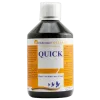Maintaining Your Birds’ Health: The Responsible Use of Antibiotics
Maintaining Your Birds’ Health:
The health of your pigeons and other birds is crucial for their longevity, performance, and overall well-being. Whether you’re a breeder, racer, or enthusiast, keeping your birds in top condition should be a top priority. One of the most debated topics in bird care is the use of antibiotics. While these medications play a vital role in treating bacterial infections, their misuse can lead to severe consequences, including antibiotic resistance, weakened immunity, and unnecessary stress on birds.
In this comprehensive guide, we’ll explore the responsible use of antibiotics, when and how to treat illnesses effectively, and how to maintain a solid health care plan that prevents disease outbreaks in the first place.
Understanding Antibiotics and Their Purpose
Antibiotics are powerful medications designed to treat bacterial infections. They do not work against viruses, fungi, or parasites, which means that using them improperly will not only be ineffective but may also create resistance, making future treatments less effective.
When Are Antibiotics Necessary?
Antibiotics should only be used when a bacterial infection is confirmed. Common bacterial infections in pigeons and other birds include:
- Salmonella (Paratyphoid) – Causes weight loss, diarrhea, swollen joints, and even sudden death.
- E. coli – Affects digestion and leads to weakness, dehydration, and poor performance.
- Respiratory Infections – Bacterial respiratory infections can lead to wheezing, nasal discharge, and breathing difficulties.
- Ornithosis (Chlamydia) – A common bacterial disease in pigeons that affects the eyes, respiratory system, and overall health.
Why Avoid Indiscriminate Use?
Overuse or misuse of antibiotics can have harmful consequences, including:
- Antibiotic Resistance – Bacteria evolve to withstand treatment, making future infections harder to cure.
- Disruption of Gut Health – Antibiotics can kill beneficial gut bacteria, leading to digestive issues.
- Weakened Immune System – Frequent antibiotic use can reduce natural immunity, making birds more susceptible to illness.
- Ineffectiveness Against Viral Diseases – Antibiotics do not treat viral infections such as paramyxovirus or adenovirus.
To ensure antibiotics remain effective when truly needed, it is crucial to use them responsibly and only under the right conditions.
Signs That Your Birds May Be Sick
Before considering any treatment, it’s essential to observe your birds for signs of illness. Symptoms of bacterial infections may include:
- Lethargy and reduced activity
- Loss of appetite or weight loss
- Changes in droppings (diarrhea or abnormal color)
- Respiratory distress (wheezing, nasal discharge, difficulty breathing)
- Swelling in joints or unusual posture
- Poor feather condition
If you notice these symptoms, avoid blind treatment and proceed with proper diagnostic testing.
The Importance of Proper Diagnosis
Never treat without a proper diagnosis. Treating your birds blindly can do more harm than good. Misuse of antibiotics can mask symptoms, make an infection worse, or contribute to antibiotic resistance.
How to Diagnose Infections Accurately
The best way to confirm an infection and determine the correct treatment is through laboratory testing. Tests should include:
- Swab Testing – A throat or nasal swab can identify bacterial infections affecting the respiratory system.
- Droppings Screening – Checking feces can help detect bacterial infections like E. coli or Salmonella.
- Culture and Sensitivity Test – This test determines which antibiotic will be most effective against the specific bacteria present.
Once a bacterial infection is confirmed, it’s important to select the right medication rather than using broad-spectrum antibiotics unnecessarily.
Ensuring the Right Treatment
If an infection is diagnosed, using the right antibiotic in the correct dosage is essential for effective treatment.
Key Guidelines for Antibiotic Use
- Always follow your veterinarian’s recommendation.
- Complete the full course of antibiotics to prevent bacterial resistance.
- Never use leftover antibiotics from a previous illness.
- Administer medication at the correct dosage and timing.
- Monitor birds during treatment for any side effects or improvements.
By ensuring targeted treatment, you can effectively eliminate infections without harming your birds’ long-term health.
Developing a Year-Round Health Care Plan
Prevention is always better than treatment. Instead of waiting for infections to occur, implement a proactive health care plan to keep your birds in peak condition year-round.
Essential Steps for Disease Prevention
- Maintain Clean Lofts and Aviaries
- Regularly disinfect feeders, waterers, and perches.
- Avoid overcrowding, which increases disease transmission.
- Provide fresh air circulation while minimizing exposure to drafts.
- Implement a Strong Nutrition Plan
- Feed high-quality grains, seeds, and essential vitamins.
- Use probiotics to support gut health and immunity.
- Ensure access to clean, fresh water at all times.
- Quarantine New Birds
- Isolate new pigeons for at least 2-3 weeks before introducing them to the loft.
- Observe them for any signs of illness before mixing with the main flock.
- Routine Health Checks
- Regularly inspect your birds for early signs of illness.
- Work with a veterinarian for scheduled health screenings.
- Use preventative treatments when necessary, but avoid overmedicating.
- Boost Immune Support
- Minimize stress, as it weakens the immune system.
- Provide a clean and well-ventilated environment.
- Use supplements such as garlic, apple cider vinegar, and oregano for natural immune enhancement.
By maintaining a structured health care routine, you can significantly reduce the need for antibiotics and improve the overall well-being of your birds.
Conclusion: Antibiotics as a Last Resort
The responsible use of antibiotics in pigeon care is critical for maintaining flock health, preventing disease outbreaks, and ensuring long-term success in breeding and racing. While antibiotics are valuable tools for fighting bacterial infections, they should only be used when necessary, with proper diagnosis and precise treatment.
To keep your birds healthy year-round:
- Avoid indiscriminate antibiotic use.
- Seek proper diagnostic testing before treatment.
- Use antibiotics at the correct dosage and duration.
- Implement a proactive health care plan to prevent infections.
By following these guidelines, you can ensure your birds thrive, perform at their best, and remain free from unnecessary medication risks. Take the responsible approach to bird health and make antibiotics a last resort, not a routine solution.
“Until Next time Keep Them Healthy And Flying”


